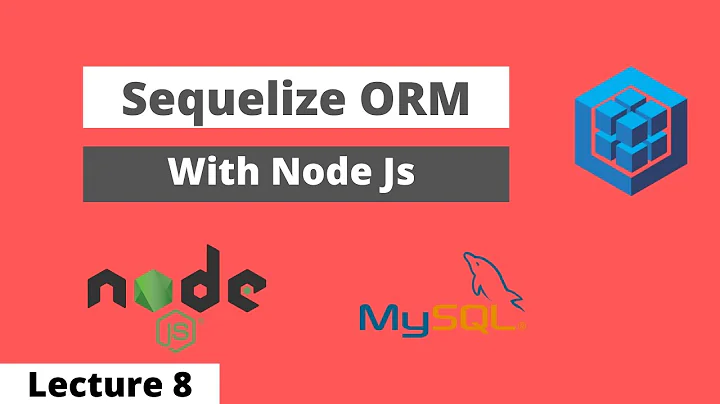Using Instance Methods in Sequelize
Solution 1
Instance method can be used on specific element instances eg.
models.User.find(123).success( function( user ) {
user.setPassword('test');
});
Solution 2
You define the function as:
function(password, done)
Yet you don't supply the done parameter. Thus, the function leaves done as undefined and calling done() is executing an undefined function.
You could fix this in 3 ways:
- Default done to a noop function
function () {} - Only return
done()if done is defined - Supply a done callback when calling the instance function.
The alternative is to refactor it to return a promise which it resolves on completion.
Related videos on Youtube
surfearth
Updated on July 09, 2022Comments
-
surfearth almost 2 years
Can someone help me understand how to use instance methods in Sequelize? I've reviewed the documentation but have found it to be sparse. At present, I am trying to use setPassword and verifyPassword instance methods on my user model. When I try to call the code in the REPL, after having imported the user model and synced the DB, I get the following:
> models.User.setPassword('test'); TypeError: Object [object Object] has no method 'setPassword'Here is the code for the user model:
var bcrypt = require('bcrypt'); module.exports = function(sequelize, DataTypes) { return sequelize.define('User', { email: { type: DataTypes.STRING, unique: true, allowNull: false, validate: { isEmail: true } }, password: { type: DataTypes.STRING, allowNull: false}, firstName: {type: DataTypes.STRING}, lastName: {type: DataTypes.STRING}, companyName: {type: DataTypes.STRING}, admin: {type: DataTypes.BOOLEAN, allowNull: false, defaultValue: false,}, forgotUrl: {type: DataTypes.STRING, unique: true}, forgotDate: {type: DataTypes.STRING}, lastLogin: { type: DataTypes.DATE, defaultValue: DataTypes.NOW } }, { paranoid: true, instanceMethods: { setPassword: function(password, done) { return bcrypt.genSalt(10, function(err, salt) { return bcrypt.hash(password, salt, function(error, encrypted) { this.password = encrypted; this.salt = salt; return done(); }); }); }, verifyPassword: function(password, done) { return bcrypt.compare(password, this.password, function(err, res) { return done(err, res); }); } } }); };-
Erik Reppen over 9 yearsWhy the returns before all your callback calls?
-
 Daniel C over 8 yearsthe use of
Daniel C over 8 yearsthe use ofthisin thesetPasswordinstance method will fail to refer to the actual User instance.
-
-
surfearth over 10 yearsAhh, that makes perfect sense. Do you have any idea why I am getting
TypeError: undefined is not a functionfromreturn done()when I run:> models.User.find(1).success( function( user ) { user.setPassword('password'); }); -
 SergeS over 10 yearsno idea . I'm using this construct in my project without a problem
SergeS over 10 yearsno idea . I'm using this construct in my project without a problem -
Ryan White over 8 yearssurfearth. "done" is the second parameter to setPassword, which has to be a function as you call it "return done();". You aren't passing in a parameter, so "done" is undefined and is not a function.







